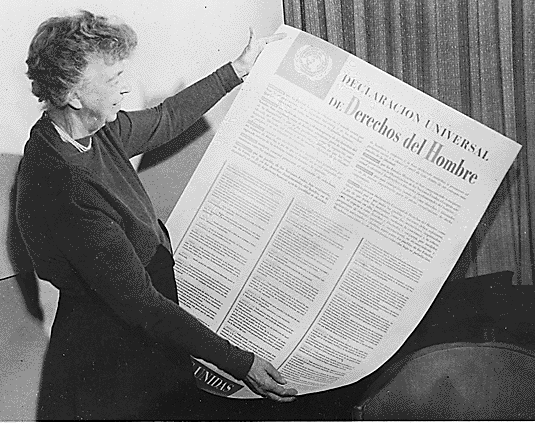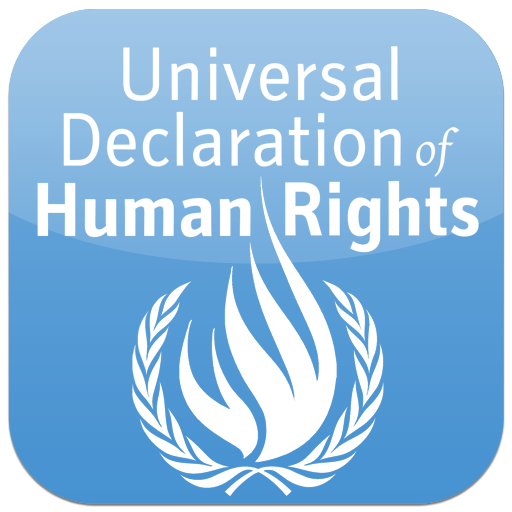THE UNIVERSAL DECLARATION OF HUMAN RIGHTS
We were in groups to answer the following questions. I was with Garazi, Marta, Maria, Marina…)
1. Where and when this Declaration comes from?
In 1948 and it comes from Paris, France.
2. Drafters profile.
18 members take part from various political cultural and religious
backgrounds. They are:
- Vice-Chairman Peng Chung Chang of China.
- The Committee Rapporteur Charles Malik of
Lebanon.
- Widow of american President Franklin D.
Roosevelt, chaired the UDHR drafting committe.
- René Cassin of France, who composed the first
draft of the Declaration.
- Eleanor Roosevelt, the only woman.
- John Humphrey of Canada, Director of the
UN's Human Rights Division, who prepared the Declaration's blueprint.

3. Meaning of:
· Dignity: The quality or state of being
worthy of esteem or respect. The basis of fundamental rights. This is
inviolable, it must be respected and protected.
· Sovereignty: Supremacy of authority or rule
as exercises by a sovereign or state. This
is related to self-government.
 · Honour: Personal integrity; allegiance
to moral principles. Fame or glory and a person that wins this for another.
· Honour: Personal integrity; allegiance
to moral principles. Fame or glory and a person that wins this for another.
· Nationality: The status of belonging to a
particular nation by birth or naturalitation. Related
to citizenship, rights etc.
· Worship: Reverene for God, a sacied
personage, on a sacied object. Freedom of religion
and its expression.
· Merit: The basic rights and wrongs of
a matter.
· Morality: Agreement with the rules of
conduct; Moral conduct. What is good and what is worse.
· Lack of livelihood: People who haven't got job.
But everyones has this right and the protection against unemployment. Related to social rights, economical rights etc.
RIGHTS AND CITIZENSHIP
We worked about what is citizenship, the main points, how is the
classical idea of it and how could be our perfect idea of citizenship.
- State is inseparable from the citizen.
- Is the right to full partnership in the
fortunes and in the future of the nation. - Paul Martin, canadian
politician.
- The have rights and duties.
- There can be no daily democracy without
daily citizenship.
- Citizenship is what makes a republic, monarchies can get along without it. - Mark Twain, US writer.
- Inclusion and exclusion.
- Every citizen of the republic ought to
consider himself an unofficial policemal, and keep unsalaried watch and
ward over the laws and their execution. - Mark Twain.
- Partnership, democracy, duties and
responsabilities are related with citizenship.
The classical idea:
- A citizen is one who both rules and is
ruled.
·
State
is an organized community living under a government.
- Membership in a political community.
- The state is inseparable from the citizen.
- State society relations: Citizens have
equal rights and their relationship with the state is based on contact and
consensus.
- A right is the ability to require the
performance of a specific dity. - Don Carmichael, University of Alberta,
CA.



No hay comentarios:
Publicar un comentario